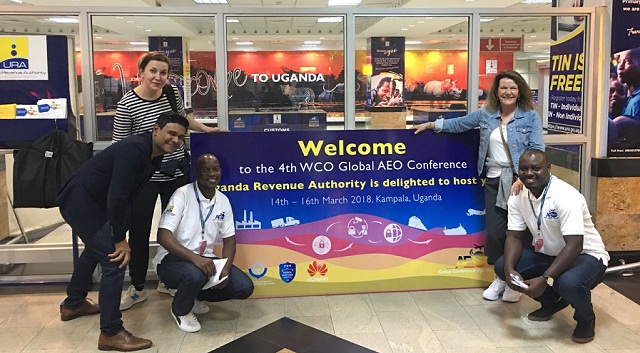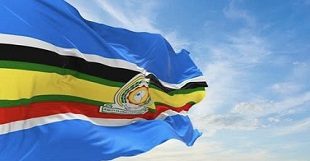
Kampala, Uganda | THE INDEPENDENT | Dicksons Kateshumbwa is the Commissioner for Customs at the Uganda Revenue Authority (URA). He speaks about the Authorized Economic Operator program (AEO) and the upcoming 4th World Customs Organization Conference to be held in Kampala from March 14 – 16.
AEO pre-event SPECIAL interview below
*****
What is the Authorized Economic Operator program?
It is a trade facilitation program which the Customs Department in Uganda Revenue Authority is undertaking to facilitate trade and promote security of international trade supply chain. Under this arrangement, businesses which comply with customs laws and regulations benefit from customs preferential treatments such as fast clearance of their goods through simplified procedures and reduced inspection. AEO is derived from the World Customs Organization framework of standards called the ‘SAFE’ an acronym which stands for Security and Facilitation in a global Environment. The SAFE is a document that was developed by the WCO member countries represented by their heads of revenue administrations at its headquarters in Brussels in 2005 with major objectives of enhancing trade facilitation and promoting supply chain security. The SAFE has got two standards which are; Customs-to-Customs standard and Customs – to Business standard. AEO therefore falls under the second pillar of the SAFE.
Who is implementing AEO?
AEO is being implemented by most of the World Customs Organization member countries although implementation is at different stages. In the great lakes, all the five EAC countries (Uganda, Kenya, Burundi, Rwanda and Tanzania) are implementing AEO at national level. However, at the regional level, the program is being implemented under the East African Community AEO regional program.
What is the criterion for making an entity an AEO?
We follow the same standards across the world. The process starts with the expression of interest through writing to the Commissioner Customs to be part of the AEO. This is followed up with self-assessment as a business entity specifically looking at key areas such as internal arrangements of the company like information technology, how the entity secures goods, premises, quality of employees and related parties such as quality of clearing agents. Once this
is done, we have our team that visits the business entity and carryout verification of information. When we are satisfied that you are a low risk business entity, meeting the conditions and able to sustain it, then we grant you an AEO status. This status comes with a certificate and a Memorandum of Understanding as well as a logo to use while dealing with customs. Within the EAC, we have the mutual recognition of the AEOs and therefore if the business entity is an AEO in Uganda, it will get the same benefits in Kenya, Tanzania, Rwanda and Burundi. We are also looking at having mutual recognition with other countries around the world.
The 4th WCO Global Authorized Economic Operator Conference week is here.
A team of experts from Brussels (WCO HQ) touched down at Entebbe International Airport this morning.
Uganda is set to host many more delegates.
We shall keep you updated on #AEO2018Kampala @aeo2018 pic.twitter.com/wGb8fR5IVR
— UgandaRevenueAuthority (@URAuganda) March 12, 2018
How many companies do you have on the program?
Currently, there 36 companies and we would like to have many as possible perhaps 100 in the next two years. But again, it is upon companies to meet requirements because we do not want to chase the numbers at the expense of the process. The good thing is that even the ones that we have are not bad because the clearing firms involved handle about 20% of our business and this is quite impressive.
What prompted you to come up with this AEO program?
The AEO introduction follows the September 11, 2001 bombings in the US in which the world reacted differently. As a result, the international customs community came together to respond to such threats. The whole world came together and said, ‘how do we respond?’ So, the customs bodies through the WCO responded by developing a framework that has got three pillars: customs cooperation – meaning that customs operation should be able to cooperate with each other, sharing information and intelligence so that they are able to vet dangerous items or people coming into the country.
 The Independent Uganda: You get the Truth we Pay the Price
The Independent Uganda: You get the Truth we Pay the Price


